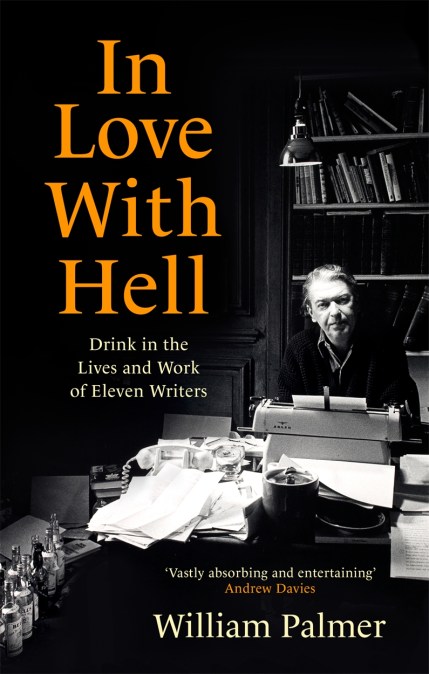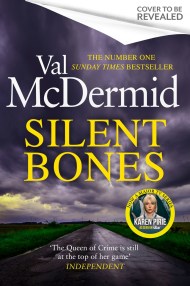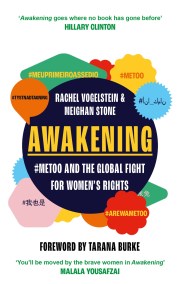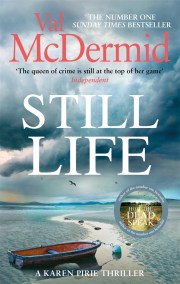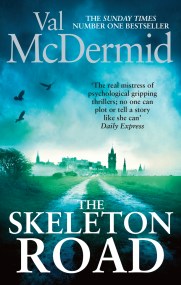In Love with Hell
On sale
28th July 2022
Price: £9.99
‘Sympathetic and wonderfully perceptive . . . a heartbreaking read’
NICK COHEN, Critic
‘Wise, witty and empathetic . . . outstanding’
JIM CRACE
‘A fascinating treatment of the age-old problem of writers and drink which displays the same subtle qualities as William Palmer’s own undervalued novels’
D. J. TAYLOR
An ‘enjoyable exploration of an enduringly fascinating subject . . . [Palmer] is above all a dispassionate critic, and is always attentive to, and unwaveringly perceptive about the art of his subjects as well as their relationship with alcohol . . . [his] treatment is even-handed and largely without judgement. He tries to understand, without either condoning or censuring, the impulses behind often reprehensible behaviour’
SOUMYA BHATTACHARYA, New Statesman
‘A vastly absorbing and entertaining study of this ever-interesting subject’
ANDREW DAVIES, screenwriter and novelist
‘In Love with Hell is a fascinating and beautifully written account of the lives of eleven British and American authors whose addiction to alcohol may have been a necessary adjunct to their writing but ruined their lives. Palmer’s succinct biographies contain fine descriptions of the writers, their work and the times they lived in; and there are convincing insights into what led so many authors to take to drink.’
PIERS PAUL READ
Why do some writers destroy themselves by drinking alcohol? Before our health-conscious age it would be true to say that many writers drank what we now regard as excessive amounts. Graham Greene, for instance, drank on a daily basis quantities of spirits and wine and beer most doctors would consider as being dangerous to his health. But he was rarely out of control and lived with his considerable wits intact to the age of eighty-six. W. H. Auden drank the most of a bottle of spirits a day, but also worked hard and steadily every day until his death. Even T. S. Eliot, for all his pontifical demeanour, was extremely fond of gin and was once observed completely drunk on a London Tube station by a startled friend. These were not writers who are generally regarded as alcoholics. ‘Alcoholic’ is, in any case, a slippery word, as exemplified by Dylan Thomas’s definition of an alcoholic as ‘someone you dislike who drinks as much as you.’ The word is still controversial and often misunderstood and misapplied. What acclaimed novelist and poet William Palmer’s book is interested in is the effect that heavy drinking had on writers, how they lived with it and were sometimes destroyed by it, and how they described the whole private and social world of the drinker in their work.
He looks at Patrick Hamilton (‘the feverish magic that alcohol can work’); Jean Rhys (‘As soon as I sober up I start again’); Charles Jackson (‘Delirium is a disease of the night’); Malcolm Lowry (‘I love hell. I can’t wait to go back there’); Dylan Thomas (‘A womb with a view’); John Cheever (‘The singing of the bottles in the pantry’); Flann O’Brien (‘A pint of plain is your only man’); Anthony Burgess (‘Writing is an agony mitigated by drink’); Kingsley Amis (‘Beer makes you drunk’); Richard Yates (‘The road to Revolutionary Road‘); and Elizabeth Bishop (‘The writer’s writer’s writer’).
NICK COHEN, Critic
‘Wise, witty and empathetic . . . outstanding’
JIM CRACE
‘A fascinating treatment of the age-old problem of writers and drink which displays the same subtle qualities as William Palmer’s own undervalued novels’
D. J. TAYLOR
An ‘enjoyable exploration of an enduringly fascinating subject . . . [Palmer] is above all a dispassionate critic, and is always attentive to, and unwaveringly perceptive about the art of his subjects as well as their relationship with alcohol . . . [his] treatment is even-handed and largely without judgement. He tries to understand, without either condoning or censuring, the impulses behind often reprehensible behaviour’
SOUMYA BHATTACHARYA, New Statesman
‘A vastly absorbing and entertaining study of this ever-interesting subject’
ANDREW DAVIES, screenwriter and novelist
‘In Love with Hell is a fascinating and beautifully written account of the lives of eleven British and American authors whose addiction to alcohol may have been a necessary adjunct to their writing but ruined their lives. Palmer’s succinct biographies contain fine descriptions of the writers, their work and the times they lived in; and there are convincing insights into what led so many authors to take to drink.’
PIERS PAUL READ
Why do some writers destroy themselves by drinking alcohol? Before our health-conscious age it would be true to say that many writers drank what we now regard as excessive amounts. Graham Greene, for instance, drank on a daily basis quantities of spirits and wine and beer most doctors would consider as being dangerous to his health. But he was rarely out of control and lived with his considerable wits intact to the age of eighty-six. W. H. Auden drank the most of a bottle of spirits a day, but also worked hard and steadily every day until his death. Even T. S. Eliot, for all his pontifical demeanour, was extremely fond of gin and was once observed completely drunk on a London Tube station by a startled friend. These were not writers who are generally regarded as alcoholics. ‘Alcoholic’ is, in any case, a slippery word, as exemplified by Dylan Thomas’s definition of an alcoholic as ‘someone you dislike who drinks as much as you.’ The word is still controversial and often misunderstood and misapplied. What acclaimed novelist and poet William Palmer’s book is interested in is the effect that heavy drinking had on writers, how they lived with it and were sometimes destroyed by it, and how they described the whole private and social world of the drinker in their work.
He looks at Patrick Hamilton (‘the feverish magic that alcohol can work’); Jean Rhys (‘As soon as I sober up I start again’); Charles Jackson (‘Delirium is a disease of the night’); Malcolm Lowry (‘I love hell. I can’t wait to go back there’); Dylan Thomas (‘A womb with a view’); John Cheever (‘The singing of the bottles in the pantry’); Flann O’Brien (‘A pint of plain is your only man’); Anthony Burgess (‘Writing is an agony mitigated by drink’); Kingsley Amis (‘Beer makes you drunk’); Richard Yates (‘The road to Revolutionary Road‘); and Elizabeth Bishop (‘The writer’s writer’s writer’).
Newsletter Signup
By clicking ‘Sign Up,’ I acknowledge that I have read and agree to Hachette Book Group’s Privacy Policy and Terms of Use
Reviews
Sympathetic and wonderfully perceptive biographies of eleven novelists and poets . . . Palmer is too wise a writer to pretend that novelists are a race apart . . . a heartbreaking read if you have learned to love the writers Palmer covers . . . By the end of this humane book, you are not falling into the sentimentality of the maudlin drunk if you wish the writers whom Palmer so tenderly examines had seen through alcohol's false promises before it was too late.
In Love with Hell is a fascinating and beautifully written account of the lives of eleven British and American authors whose addiction to alcohol may have been a necessary adjunct to their writing but ruined their lives. Palmer's succinct biographies contain fine descriptions of the writers, their work and the times they lived in; and there are convincing insights into what led so many authors to take to drink.
A vastly absorbing and entertaining study of this ever-interesting subject.
Praise for Four Last Things:
The depth and eloquence of this fine collection . . . might surprise even the most ardent admirers of his novels.
Praise for The India House:
[T]he mood of gentle regret and a sense of living in a time out of place resembles no writer so much as Chekhov.
An enjoyable exploration of an enduringly fascinating subject . . . [Palmer] is above all a dispassionate critic, and is always attentive to, and unwaveringly perceptive about the art of his subjects as well as their relationship with alcohol . . . [his] treatment is even-handed and largely without judgement. He tries to understand, without either condoning or censuring, the impulses behind often reprehensible behaviour.
The India House builds on its somewhat dusty foundations to altogether dazzling effect.
Praise for Leporello:
[A]n extraordinarily skilful novel.
Praise for The Good Republic:
Mr Palmer's book set a standard for an east European historical novel that has yet to be matched - an especially impressive feat for an outsider . . . It is a tribute to his novelist's skills that anyone reading the book has the feeling of complete authenticity in both history and geography. Readers are left longing for a sequel.
It is an achievement to take on this subject and succumb to neither puritanism nor romanticising. In Love with Hell will send you not to the drinks cabinet but back to your bookshelves to rediscover the brilliance that Palmer's writers couldn't quite drown.
William Palmer's wise, witty and empathetic account of the tug 'o war - and the complicity - between alcohol and the frailties of talent lines up brilliant and boozy biographies of eleven celebrated writers, each of whom was propelled by the grip of the bottle, the allure of the bar and pub, the terrors of the blank page, and the destructive perils of both failure and fame. It is outstanding.
A masterful insider's account of how alcohol ruined the sustained careers of 11 writers, including Kingsley Amis, Dylan Thomas and Jean Rhys.
A fascinating treatment of the age-old problem of writers and drink which displays the same subtle qualities as William Palmer's own undervalued novels.
Praise for The Contract:
A beautifully written exploration of a once famous case that has uncomfortable relevance to our own times.
Praise for The Contract:
A flawless and intelligent study of sex, politics and the abuse of power. It is both subtle and shocking: that is a rare and potent combination.
Praise for The Pardon of Saint Anne:
Palmer's beautifully crafted novel convincingly unfolds for us a story of inadvertent complicity in acts of unspeakable evil.
Praise for The Pardon of Saint Anne:
[A] haunting work over which one wants simultaneously to hurry and to linger.

